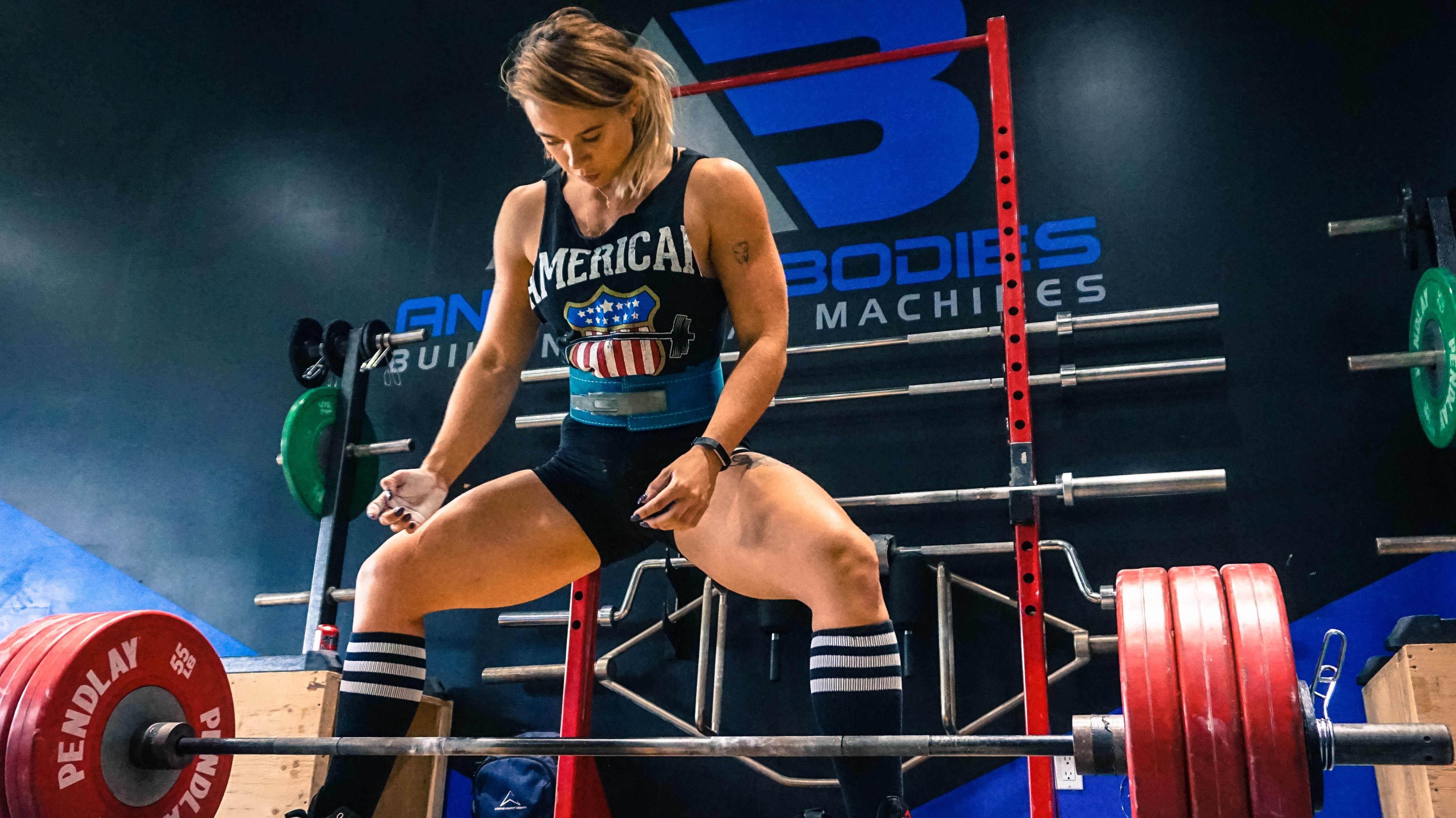
In high school, I worked with a strength coach in the off-season of track. At one point, my mom told me that I needed to back off the weights because my arms looked “manly.” Ouch.
But I’m not the only one that’s faced this critique.
Before New Mexico-based veterinarian Sarah Walley, 33, made “gaining” her goal, “bulking up” basically meant telling femininity to eff off. “I would stick to the weight machines, typically aiming for at least 20 reps because my mama always told me that girls should lift lighter weights with high reps,” she says.
And when body activist and Girls Gone Strong advisory board member Erin Brownwent to her gym to pick up some info about deadlifts, she says she found that the only informational packet for women was about weight loss.
“The message that our value is based on our thinness is all over our society, says Mary Pritchard, Ph.D., a psychologist and body image expert at Boise State University.
That idea even extends into the gym—where well-meaning motivational messages like “strong is the new sexy” still equate fitness with looks. “Women’s fitness has always focused on ‘losing,’” says Erica Suter, C.S.C.S. “Whether it involves toning, cutting, trimming, or slimming—the common theme is loss.”
Why You Should Take Up More Space
Instead of approaching fitness as a way to trim away portions of ourselves, we should try to be more of the awesome women we already are, says Women’s Health fitness contributor and trainer Jen Sinkler.
“By focusing on muscle gain, you’re able to shift the conversation around women’s bodies,” she says. In other words, you make it more than okay for women to increase their muscle mass rather than be scared of “bulking up.”
“I just want muscles big enough to smash the patriarchy,” says Sinkler.
For Walley, the switch came after having two babies and losing the baby weight. Though she was smaller, she felt “soft” and weak. So when she heard about a lifting program designed especially for women, she decided to try it out. Within a few months, she could see and feel the changes in her body. “I was so happy to feel strong,” she says.
“Now, [almost three years later] I brag when the measuring tape around my arms or legs goes up!” she says. “My body is now aesthetically and functionally pleasing to me, and that is priceless.”
Not only is embracing “bigness” liberating at the gym, it helps women, like Brown, be big in other aspects of their lives. “Having the confidence to take up physical space without apology also pushes me to use my voice in big ways, take risks, and worry less about the opinions of others,” she says.
Your Body Doesn’t Want to Shrink
Let’s get real: Some of us aren’t even built to be small. Whether you’re naturally athletic with broad shoulders or have legs that you dis by calling them “tree trunks,” you can’t always (and probably shouldn’t) shrink what your mama gave you.
At a certain point, trying to be any smaller than you’re biologically programmed to be isn’t going to be healthy, says Sinkler. And even with a healthy approach to fitness, there are parts of your body that will always be bigger than the woman’s next to you—so why not embrace that, she says. #TruthBomb
Plus, when you focus on gaining rather than losing size in the gym, your body’s cells do a little happy dance. That’s because gaining lean tissue—you know, muscle—makes your body more metabolically active, says Sinkler. On top of that, increasing your muscles increases your energy levels, improves your heart health, and can balance you hormones.”
And, as Suter puts it, “going up a jean size could mean you’ve got a durable booty and a lower risk of injury during workouts,” she says.
Plus, when you focus on gaining rather than losing size in the gym, your body’s cells do a little happy dance, says Sinkler.
While losing actual excess fat (not just what you’ve been pinching in the mirror—stop that!) can benefit your health, concentrating on muscle gain instead of fat loss is so much more empowering for your workout and your health. Plus, a natural byproduct of putting on more muscle is, in fact, losing excess fat. Boom.
But Is It OK to Be Small?
Hell, yeah, it’s OK to be small! Just like I’m built with big hips, some women are built with small ones. The same goes for any and all of our body parts. And while it’s absolutely possible to gain muscle size, it takes more work for you than that dude sweating it out next to you. After all, we have less bulk-building testosterone than do men.
What matters is going after what you really want. Since we’ve always been told that we need to downsize, it’s important to think about whether dropping a size is what you actually want for yourself and your body, says Brown.
If your goal leads to gaining muscle and dropping a size, that’s cool. And if it doesn’t, that’s fine too. The bottom line is that your goals should make you feel powerful in your body, not meet someone else’s standards. “I just want muscles big enough to smash the patriarchy,” says Sinkler.
Originally written for Womens’s Health.